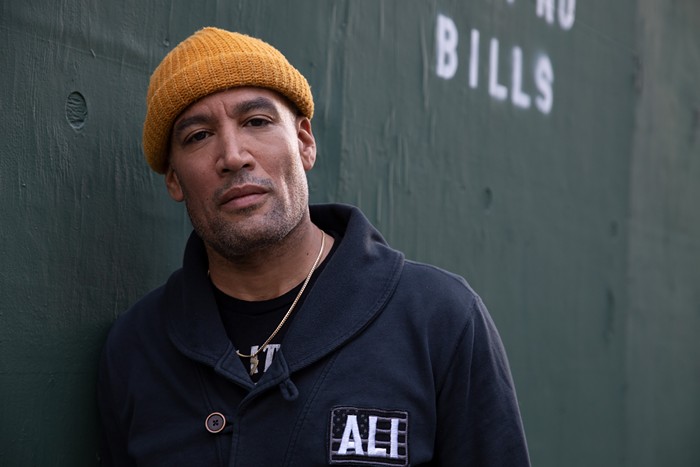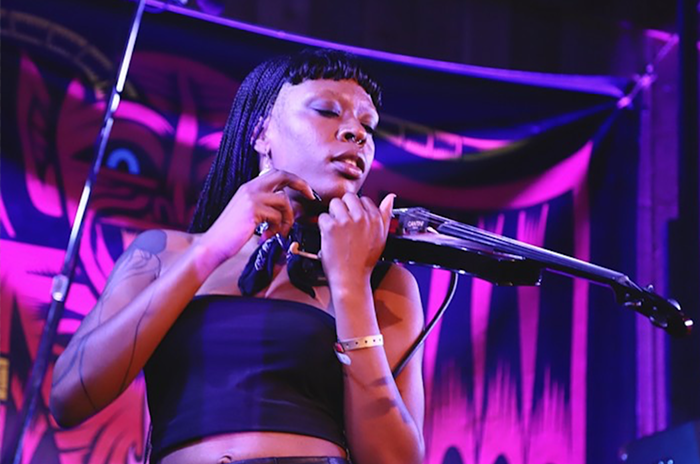Thurs April 3
White Eagle
Simply put, Portland's Skeleton Coast plays a kind of dual-vocal melodic hardcore/punk. It lands in the musical ballpark of a lot of bands these days: there's dramatic vocal interplay; driving, yet intricate guitar melodies; a passionate delivery. Most of all, this five-piece accelerates on the kind of tension and immediacy that comes from not knowing their future. Explains guitarist/vocalist Steve Gevurtz cryptically, "I feel like we're all on this brink of adulthood, where we have to do as much as we can while we're together." Bassist Katie Greenhoot elaborates: "And with the state of the world, no one knows what's gonna happen."
Skeleton Coast is a sorta DIY supergroup, all having played in bands about which you might not have heard, unless you've been frequenting Portland's basements for the past couple of years (or at the very least, the Handmade Bazaar). Featuring ex-members of The Snacks (including drummer Mike Angell, guitarist Sam Shaw), Monster Squad (vocalist Kimberlyn Nevins), The Dimes, The Disappearer, and Heart Beats Red, it's the exact midpoint between all of those bands: fast, bombastic, complicated punk with a lot of heart--and even more social conscience.
According to Nevins, Skeleton Coast's lyrics touch on such subjects as psychiatric meds, "learning from your mistakes," and her father, "who's a Vietnam vet I took a conversation [about his experiences] and tied it into [the fact that] my brother, despite like being 'punk rock,' thinks that because that's what our father did, he has to do it, too." Also, Gevurtz wrote a song about "the weird, subtle, psychological implications of gentrification--being a part of it, what you can do and what you can't."
This is refreshing, given the dismal lyrical state of lots of popular "punk" bands. For instance, 99% of the words on Taking Back Sunday's currently blowing-up album, Tell All Your Friends, pertain to girls/relationships, often with violent imagery. (The one exception: an eye-rolling admonishment of a frequent pot user that seems more evangelical than straightedge.) "I think usually if a you spend a lot of time thinking about the lyrics you're writing," notes Greenhoot, "then you are, in a way, practically applying it to the real world, cause it's something you've thought about and are consciously living that way. The personal is political--that's something we've talked about a lot we're not Submission Hold, or anything."
Gevurtz is quick to add, "But we're not the Dandy Warhols, either."


















